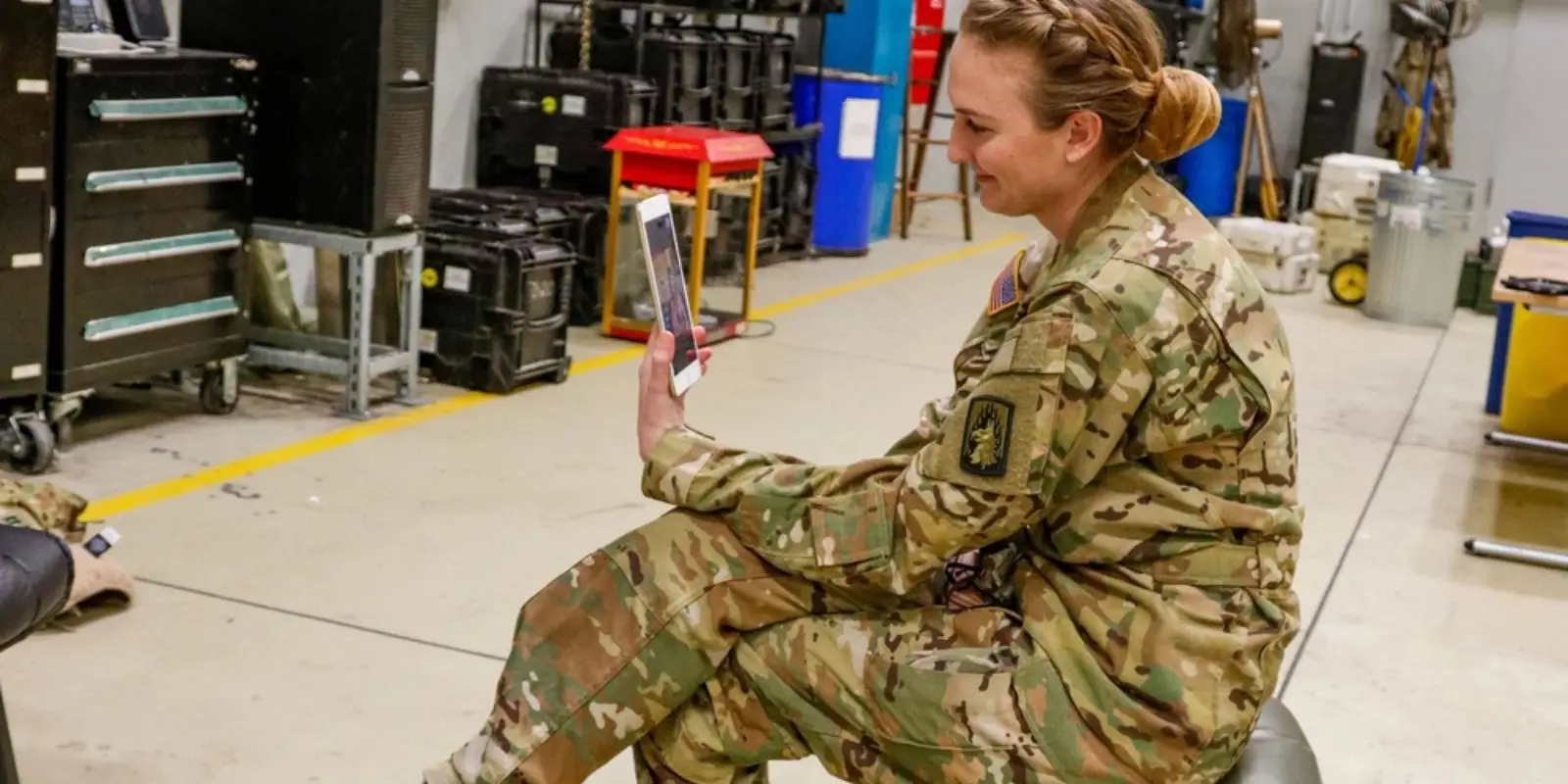ARMY SOCIAL MEDIA INFLUENCER OR PSYOP? TURNS OUT, THEY’RE THE SAME
By Buddy Blouin

The recruiting problem found in the U.S. military continues to be documented, but some areas are likely to be more affected than others. For example, joining the military, specifically the U.S. Army, and becoming part of the infantry is a standard idea of what Soldiers will be doing. But what about becoming someone that builds relationships in the field and uses the power of social media to positively influence American interests? Welcome to the ever-changing field of PSYOPs. However, if America is going to address its growing need for these specialists, the American Armed Forces are going to have to adapt the way it markets PSYOP positions.
Read next:
The Fort Bragg 82nd Airborne Can't Stop Breaking the InternetWhat Is a PSYOP?
A psychological operation (PSYOP) is when a Soldier in the U.S. Army works to use their communication skills to influence individuals, enemies, and allies to act in a way that helps America achieve its goals. Such influence comes from unconventional means and continues to grow with the advancement in technology. Operations are conducted both online and in the field. These missions can range from social media influencing to establishing relationships in foreign lands with locals to cyber warfare and more. There are three categories of PSYOPs:Strategic
Information is a core part of the overall strategic objectives of the U.S. Department of Defense (DoD). This is shown through PSYOP missions that involve getting information in favor of American interests outside of the military from U.S. government agencies.Operational
Whether it’s on the battlefield or during peacetime, operational PSYOPs are used to help increase the effectiveness and success of the strategies put into place by joint force commanders (JFCs).Tactical
Tactical PSYOPs support the tactical mission opposed by enemy forces in the area assigned to a tactical commander. An example would be maneuvering a loudspeaker into position on the battlefield in an attempt to communicate the surrender of your enemy to end a conflict.Is PSYOPs Dangerous?
Working as a PSYOP is often more dangerous during wartime, as your likelihood of being involved in a conflict is higher. The nature of your work is also likely to change during wartime as communications on the battlefield and within hostile regions become more and more important to American objectives.The Army’s 37X Program
A unique opportunity for civilians to join the Special Forces comes through the 18X program. Under normal circumstances, joining a Special Forces team requires serving for a few years before you’re eligible for consideration. The 18X program changes this. Civilians who enlist in the program have an opportunity for immediate selection into Special Forces. It’s available to civilians in every state and can provide a fast track for civilians, making it an attractive recruiting tool. Army PSYOPs has a similar procedure known as the 37X program. The problem, however, reminds us that for potential recruits to become interested in the program or career path, the disconnect between the general public and understanding of what PSYOPs actually do needs to be dealt with. “If I just said, ‘Hey, you want to come and be a psychological operations operator?’ some people are like, ‘What are you talking about?’ But if I went in and said, ‘Hey, do you want to be a military social media influencer?’ I think I know what you told me just there,” said the Head of Army Special Operations Command, Lt. Gen. Jon Braga. Content creation and being an influencer may feel like a path more in line with the Kardashians, but the U.S. military does it, too. Ironically, the very fix to many of the recruitment woes seen in the Army will likely be remedied only after they fix the recruitment issues for PSYOPs. “The younger generation…they’re living on different platforms; they’re consuming media in different ways. And we have to adapt to that…[Our content]’s got to be organic because that’s what people like to consume. [If] it’s more believable, and the more transparency I think you have, the more people understand, ‘Oh, I could do that…I want to do that,’” said Braga.Is PSYOPs Special Forces?
Yes. Those conducting psychological warfare for American interests are considered a part of the Special Forces. This designation began on March 3, 1993, as seen in groups such as the 4th Psychological Operations Group (Airborne). Using communications to lower the morale of opposing forces and influence our enemies continues to be a great way to assist troops on the battlefield. Outside of war, it’s an important tool used for things such as recruitment and influencing our allies. There are unique skills and opportunities available in the Army, as well as any other branch of the military, but working as a PSYOP may be at the top of the list. From social media to convincing insurgents to surrender, it’s a career with plenty of range.Suggested read:
What to Know Before Joining Special Forces TrainingThe appearance of U.S. Department of Defense (DoD) visual information does not imply or constitute DoD endorsement. Photo by Master Sgt. Ryan Matson
SHARE:
TAGS:
career
JOIN OUR NEWSLETTER
Get the latest news and military discounts



